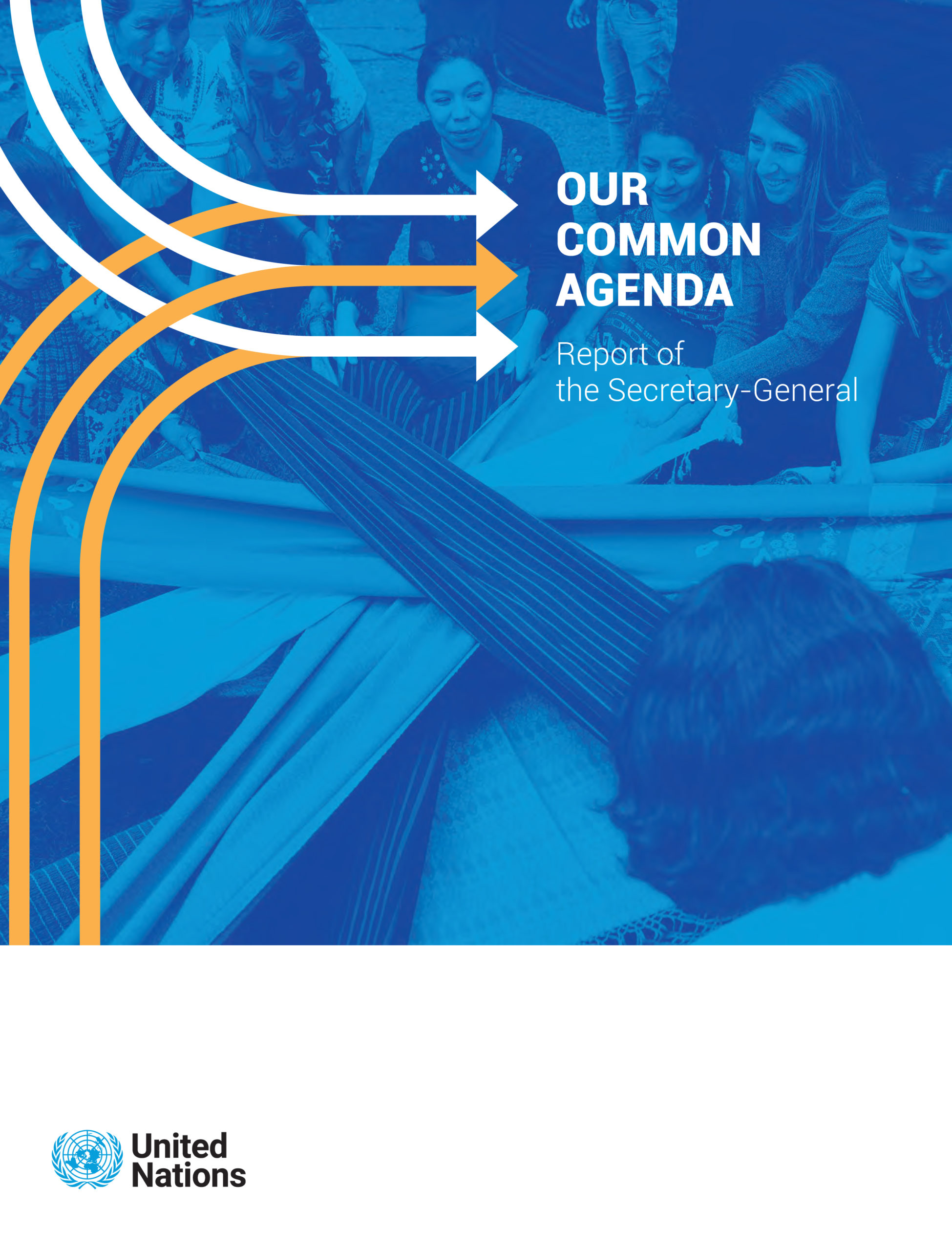The UN Secretary-General presented the report “Our Common Agenda”,* outlining his vision on the future of global cooperation through an inclusive, networked, and effective multilateralism to strengthen and accelerate multilateral agreements – particularly the 2030 Agenda. Full report: https://www.un.org/en/content/common-agenda-report/
The President of the General Assembly (PGA) will convene a series of open, inclusive, informal thematic consultations to provide the Secretary-General with an opportunity to inform Member States and other stakeholders on follow-up to the report and to allow Member States the opportunity to further consider the various proposals, options and potential means of implementation.

The proposals included in “Our Common Agenda” have been grouped for purposes of these informal consultations in five clusters based on their thematic scope. Each of the five thematic consultations will last two days and will have the following format.
Day 1:
- Opening plenary meeting including a briefing by the Secretary-General on the cluster of proposals, followed by an informal plenary debate with the participation of Member States and Permanent Observers.
Day 2:
- Morning: A panel discussion with representatives from the UN system.
- Afternoon: Panel discussions with participation of relevant stakeholders, including civil society representatives, private sector, young people and academia.
The PGA invites civil society representatives, private sector, young people, academia and other relevant stakeholders to present questions or brief statements regarding “Our Common Agenda” during the afternoon discussion of the second day. The question or statement must be kept within 2-3 minutes.
The stakeholder panel discussions will commence at 3 p.m. as follows:
(1) 11 February: Accelerating and scaling up the SDGs, leaving no one behind
The deadline to register your interest in making an intervention was 2 February.
(2) 15 February: Accelerating the SDGs through sustainable financing and building trust
The deadline to register your interest in making an intervention was 2 February.
(3) 22 February: Frameworks for a peaceful world–promoting peace, international law and digital cooperation The deadline to register your interest in making an intervention is 8 February.
(4) 4 March: Protecting our planet and being prepared for the future
The deadline to register your interest in making an intervention is 17 February; and
(5) 8 March: Enhancing international cooperation
The deadline to register your interest in making an intervention is 17 February.
Due to the limited time available for the consultations, PGA will not be able to accommodate all the requests for speakers. Only selected speakers will be contacted by the Secretariat. We appreciate your understanding.
